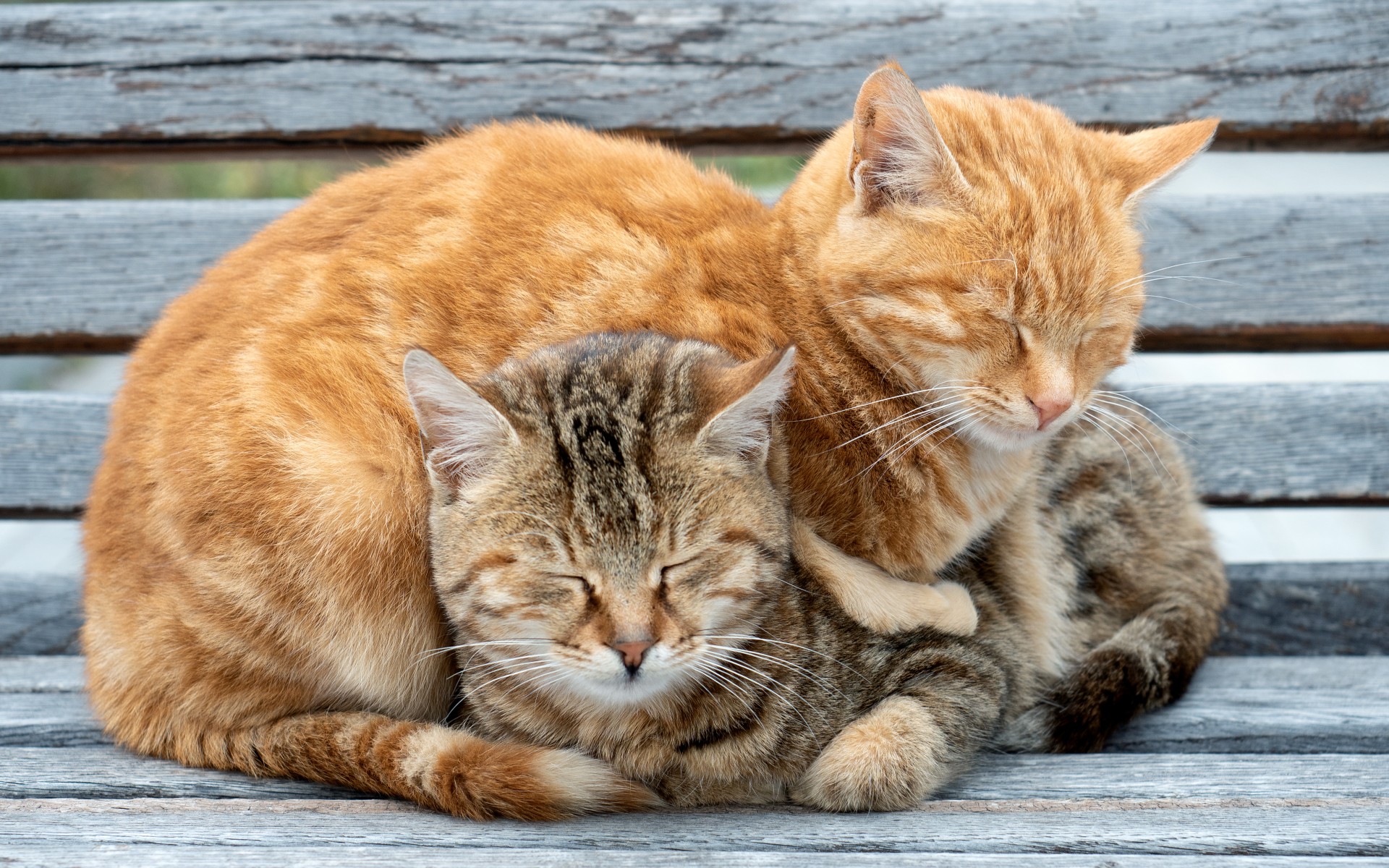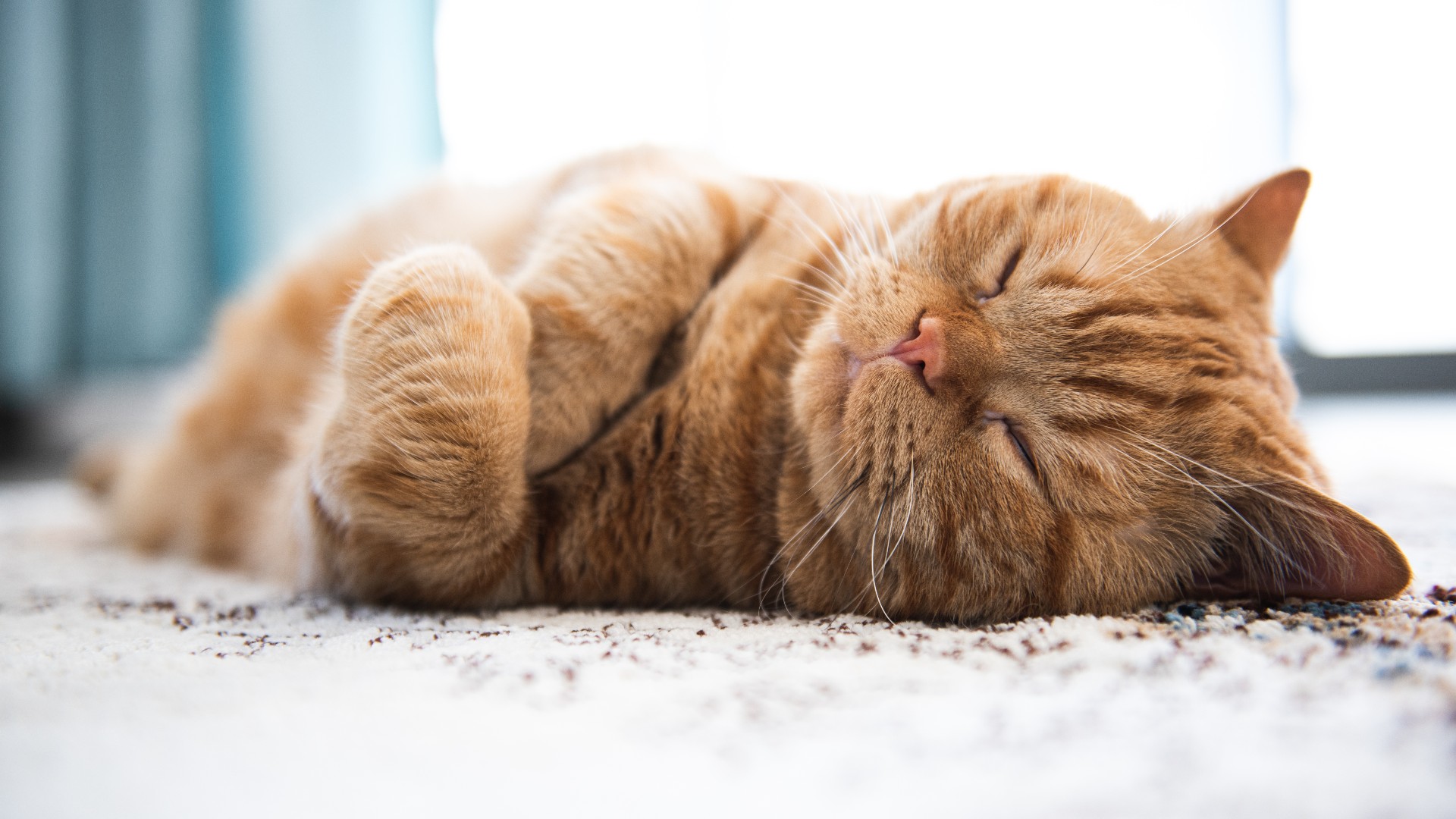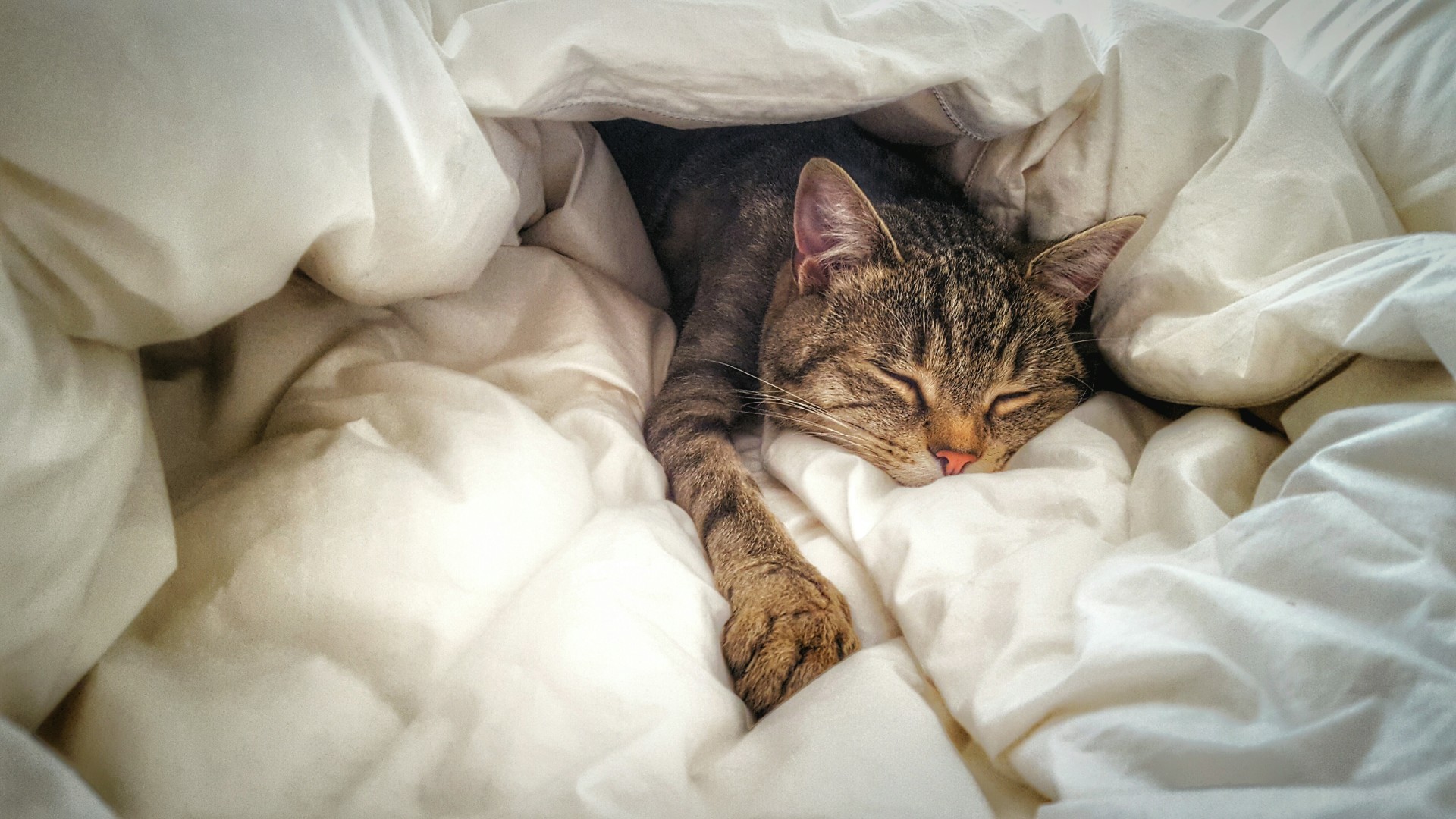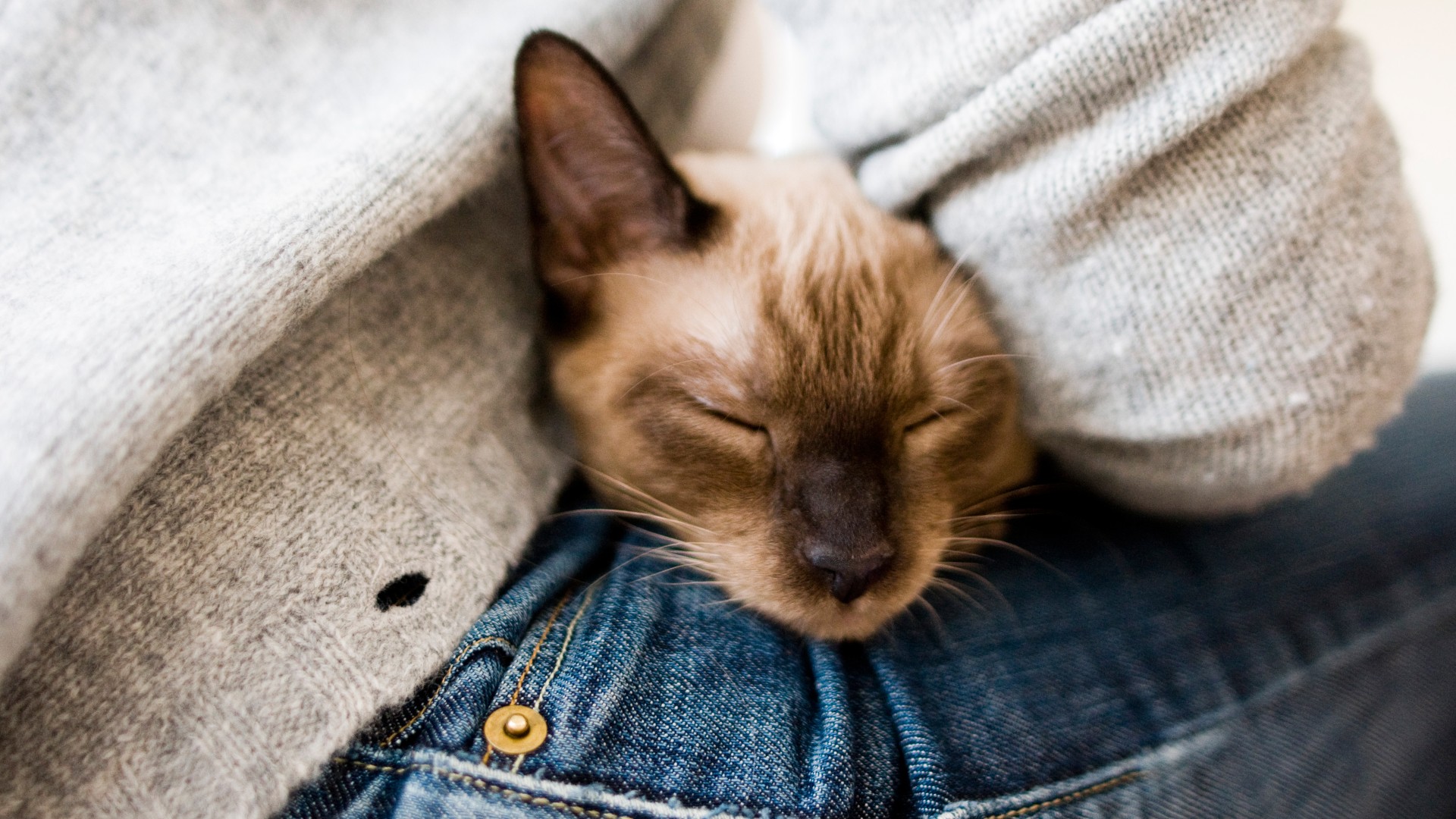Why do cats sleep so much? What's normal and not
Wondering why do cats sleep so much? The answer may surprise you

Get the best advice, tips and top tech for your beloved Pets
You are now subscribed
Your newsletter sign-up was successful
Why do cats sleep so much? It’s a common question among cat owners. Some cat owners are concerned that their cat is sleeping an excessive amount, and wondering if that could indicate an underlying medical issue. Other cat owners are simply curious and wondering why cats can get away with so many more “cat naps” than humans. When you purchased the best cat bed for your feline friend, you probably never imagined that they would spend an average of 15 hours per day sleeping in it!
Cats have different sleep cycles than humans, for a number of reasons. Unless your cat’s sleep habits have dramatically changed, it’s very likely that they are just demonstrating normal feline behavior. Let’s take a closer look at why do cats sleep so much and uncover their unconventional sleeping schedules to see what’s behind those all-day siestas.
- Why do cats sleep on you? Are cats protective of their owners?
- Why do cats need a scratching post?
- Why does my cat follow me everywhere?
How many hours a day do cats sleep?
Cats sleep an average of 15 hours per day. However, there is significant individual variation in sleep habits. Some active cats may sleep as little as 12 hours per day, while some couch potato cats sleep up to 20 hours per day. A normal cat may have as few as four waking hours per day, which is probably something you did not expect when you first adopted your feline friend!
Cats are crepuscular, which means they are most active at dawn and dusk. Most of their waking hours are concentrated in the early morning and the evening. Throughout the rest of the day and night, your cat may nap more or less nonstop, only waking for brief periods to eat or drink, use the litter box, or change sleeping locations or positions. After a brief waking period, your cat may fall back asleep almost immediately. While it may seem strange, this is completely normal for healthy, adult cats.
When kittens are young and growing rapidly, they may sleep even more than adult cats. Healthy kittens can sleep up to 22 hours per day, waking for brief periods of intense play and then immediately falling back asleep. Getting long periods of rest allows these kittens to devote more energy to growth and development.
Why do cats sleep so much?
1. It’s genetic
As a species, cats are programmed to come alive at dawn and dusk. Other predatory animals tend to hunt during the day or in the deepest hours of the night, so this genetic wiring gave cats an evolutionary advantage. They are hunting at a time when there is less competition for prey animals.
Although our feline friends are domesticated to live alongside us, genetic patterns still influence their activities. They want to hunt when prey is abundant and their eyesight is at its best. They spent the rest of their time laying low to avoid other predatory animals, which is where all that sleep comes into play.
Get the best advice, tips and top tech for your beloved Pets
While cats may be more independent than their canine counterparts, they’re still highly social and adaptable. They often break up their daytime sleep schedule to spend time with their humans.
2. They need to cool down

If you notice your kitty sleeping more during the summer months, there’s likely a good reason. Unlike us humans, who can jump in a cold shower or pool when the weather gets too steamy, cats seek out other ways to lower their body temperature. Fortunately, an extra nap is a perfect way to do that.
Cats instinctively know that being out in high temperatures will cause them to expend too much extra energy, so they choose to sleep during the hottest part of the day and venture out when the weather is cooler. This helps regulate their body temperature.
3. They’re recharging their batteries
Whether they’ve been hurtling through the house in hot pursuit of one of the best cat toys or out hunting prey, being physically active drains a cat’s batteries quicker than a social media scrolling session on your iPhone.
While you may be wondering why your feline friend even needs to hunt, given you’ve always got quality cat food at the ready, remember that they’re wired to stalk, hunt, and catch prey in the same way that humans are wired for connection.
Getting plenty of sleep during the day replenishes a cat’s energy levels and ensures they have plenty of fuel in the tank for those dusk hunting expeditions.
4. It’s cold and wet

If you enjoy spending cold, rainy days curled up with a good book, you’re not alone. Most cats aren’t keen to venture out on chilly or rainy days and would rather curl up in a luxury cat bed and chill out. The domestic cat’s wild ancestors knew that wet or cold weather drastically reduced the likelihood of a successful hunting session, so rather than wasting energy attempting to catch prey in less than ideal conditions, they chose to sleep instead.
Our feline friends are also affected by the weather like us, with the cooler months acting as a signal for the body to rest and restore itself and the warmer months encouraging greater levels of activity.
5. They’re not always in a deep sleep
While it may look like your kitty is getting more sleep each day than you are, a lot of what you see is cat-napping rather than deep sleep. If you familiarize yourself with the various cat sleep positions and then observe your furkid, you’ll probably find that a lot of what they’re doing is dozing.
A cat will sleep deeply for part of the day, then spend the remainder of the day taking brief naps of 15-30 minutes. During these naps, the eyes are either partially or completely closed but the ears or tail may still be moving. Your cat is resting, but still staying alert to the environment and ready to respond to danger.
6. It could be a sign of illness
For most cats, sleeping a lot isn’t a cause for concern. If you notice a sudden change in your kitty’s sleeping habits, though, you should reach out to your veterinarian. Cats may hide or become less active when stressed or unwell. If a change in sleeping habits is accompanied by other changes, such as a change in appetite or drinking habits, you should be especially concerned and schedule an appointment with your veterinarian at your earliest convenience. Read Is my cat sick? 11 signs that it’s time to take your cat to the vet for more info.

When to be concerned about excessive sleeping in cats
Given the normal sleep habits of cats, it can be difficult to determine when you should be concerned. Fortunately, once you have had your cat for some time, you will become accustomed to their sleeping habits. You will determine whether your cat is an active cat or a couch potato, and figure out when in the day your cat prefers to nap.
Once you are familiar with your cat’s sleep habits, you can watch for any significant changes in these habits. Any dramatic change in your cat’s sleep patterns may suggest an underlying medical concern and should be addressed by your veterinarian. If you have recently adopted a new cat and haven’t yet had an opportunity to become familiar with their sleeping habits, recognizing abnormal sleep can be a bit more challenging.
In general, a normal napping cat can be woken up with stimulation. Your cat may or may not leap into activity when woken up, but they should open their eyes and look at you if you touch them or make a loud noise in their vicinity.
If your cat is sleeping so deeply that they do not respond to stimulation, this is a cause for concern. Additionally, a normal cat should have at least a few waking periods during the day. If your cat has been sleeping for 12 or more hours without changing location or positions, this could suggest a medical concern and warrants a call to your veterinarian.
Check out our pieces on Why does my cat sleep at my feet?, Why does my cat sleep by my head? and Why does my cat sleep between my legs?

Kathryn is a freelance writer who has been a member of the PetsRadar family since it launched in 2020. Highly experienced in her field, she's driven by a desire to provide pet parents with accurate, timely, and informative content that enables them to provide their fur friends with everything they need to thrive.
Kathryn works closely with vets and trainers to ensure all articles offer the most up-to-date information across a range of pet-related fields, from insights into health and behavior issues to tips on products and training.
When she’s not busy crafting the perfect sentence for her features, buying guides and news pieces, she can be found hanging out with her family (which includes one super sassy cat and a kitten), drinking copious amounts of Jasmine tea and reading all the books.
She has written for a range of publications, including Fit&Well, Top Ten Reviews, LiveScience, Goodto, and Product Hunt.
